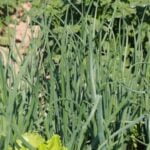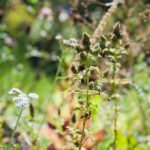Are you struggling with unwanted grasses and weeds taking over your vegetable garden? Look no further. In this article, we will explore the use of natural grass killers for vegetable gardens. Whether you are a seasoned gardener or just starting out, understanding how to effectively control and eliminate grasses naturally is essential for maintaining a healthy and thriving vegetable garden.
Using a natural grass killer for vegetable gardens is not only effective in controlling unwanted growth but also ensures that the produce from your garden remains free from harmful chemicals. With the increasing trend towards organic and sustainable gardening practices, natural grass killers offer a safe and eco-friendly solution to manage grasses and weeds in your vegetable garden.
In the following sections, we will delve into the importance of natural grass killers, common grasses and weeds found in vegetable gardens, factors to consider when choosing a natural grass killer, DIY natural grass killer recipes, best practices for applying natural grass killer, alternative methods for controlling grass, and tips for maintaining a healthy vegetable garden after using natural grass killers.
Whether you are dealing with crabgrass, dandelions, or other invasive plants, this comprehensive guide will equip you with the knowledge needed to keep your vegetable garden flourishing.
Understanding the Importance of Natural Grass Killers
When it comes to maintaining a thriving vegetable garden, the presence of unwanted grasses and weeds can be a major obstacle. Traditional herbicides may effectively kill these unwanted plants, but they often contain harmful chemicals that can leach into the soil and potentially harm your vegetable crops. This is where the importance of natural grass killers for vegetable gardens becomes evident.
Benefits of Using Natural Grass Killers
Using natural grass killers in your vegetable garden offers several benefits. First and foremost, they are safe for the environment, as they do not contain harmful chemicals that can affect the soil or water supply. Additionally, natural grass killers are safe to use around edible plants, ensuring that your vegetables remain free from any potentially harmful residues.
Another important benefit of natural grass killers is their ability to target specific types of grasses and weeds without harming desirable plants. This targeted approach allows you to effectively control unwanted vegetation without compromising the health of your vegetable crops.
The Impact on Soil Health
One crucial aspect to consider when using any type of grass killer in a vegetable garden is its impact on soil health. Natural grass killers work with the environment rather than against it, as they break down naturally and contribute organic matter to the soil. This improves soil structure and helps provide essential nutrients for your vegetable plants to thrive.
By understanding the importance of natural grass killers for vegetable gardens, you can make informed decisions about how to effectively manage unwanted vegetation while maintaining a healthy growing environment for your vegetables.
Common Grasses and Weeds Found in Vegetable Gardens
Vegetable gardens are often plagued by the growth of unwanted grasses and weeds that compete with the vegetables for essential nutrients, water, and sunlight. Identifying these common grasses and weeds is the first step in effectively controlling their growth in a natural and eco-friendly manner.
Some of the most prevalent grasses and weeds found in vegetable gardens include:
- Dandelion – known for its bright yellow flowers and deeply toothed leaves, dandelions can quickly take over a garden if left unchecked.
- Crabgrass – this pesky annual grass can spread rapidly and outcompete vegetable plants for resources.
- Quackgrass – characterized by its long, creeping rhizomes, quackgrass can be particularly difficult to eradicate once established in a garden.
- Chickweed – a low-growing weed with small white flowers that can quickly cover bare soil and compete with vegetable crops.
Understanding the characteristics of these common grasses and weeds will help gardeners develop targeted strategies for natural control without causing harm to their vegetables or the environment. It is important to choose a natural grass killer that specifically targets the problematic species while leaving the desired plants unharmed.
Factors such as the type of soil, climate, and specific types of grasses and weeds present should also be taken into account when selecting a natural grass killer for vegetable gardens. By considering these factors, gardeners can ensure that they are using an effective solution while minimizing any potential negative impact on their vegetables or the surrounding ecosystem.
Factors to Consider When Choosing a Natural Grass Killer
When it comes to choosing a natural grass killer for your vegetable garden, there are several important factors to consider. Making the right choice will not only help you effectively address the issue of unwanted grasses and weeds, but also ensure the safety of your vegetables and the overall health of your garden.
- Effectiveness: Look for a natural grass killer that is proven to be effective in eliminating unwanted grass and weeds without causing harm to your vegetables.
- Ingredients: Check the ingredients used in the natural grass killer to ensure that they are safe for use in a vegetable garden. Look for products that are non-toxic and environmentally friendly.
- Application: Consider how the natural grass killer needs to be applied. Some products come in spray form, while others may need to be mixed with water and poured at the base of plants.
Additionally, it’s important to take into account the specific types of grasses and weeds present in your vegetable garden. Different natural grass killers may be more effective against certain types of unwanted vegetation, so it’s essential to know what you’re dealing with before making a decision.
Furthermore, consider any potential impact on beneficial insects and wildlife in your garden. Choose a natural grass killer that will target only the unwanted plants while preserving the ecological balance of your garden environment.
By carefully considering these factors, you can select a natural grass killer that not only effectively addresses the issue at hand but also safeguards the health and vitality of your vegetable garden.
DIY Natural Grass Killer Recipes for Vegetable Gardens
When it comes to maintaining a healthy and thriving vegetable garden, the presence of grass and weeds can be detrimental to the growth of your vegetables. Fortunately, there are natural grass killer recipes that you can make at home using simple ingredients that are safe for your vegetable garden.
One effective natural grass killer for vegetable gardens is a mixture of white vinegar, dish soap, and salt. Simply combine one gallon of white vinegar with one cup of salt and a tablespoon of dish soap in a spray bottle. Shake well to ensure the ingredients are thoroughly mixed. This solution can be sprayed directly onto the unwanted grass and weeds in your vegetable garden, effectively killing them within a few days.
Another DIY natural grass killer recipe involves using boiling water. Boiling water is an inexpensive and eco-friendly way to kill grass and weeds in your vegetable garden. Simply boil a pot of water and carefully pour it over the unwanted grass or weeds. The hot water will penetrate the leaves and roots, effectively killing them without causing harm to your vegetables.
Essential oils such as clove oil or citrus oil can also be used as natural grass killers in vegetable gardens. Simply mix a few drops of essential oil with water in a spray bottle and apply it directly to the undesired vegetation. These essential oils have herbicidal properties that can help eliminate grass and weeds while leaving your vegetable plants unharmed.
| DIY Natural Grass Killer Recipe | Ingredients |
|---|---|
| Vinegar-based Grass Killer | White vinegar, salt, dish soap |
| Boiling Water Grass Killer | Water |
| Essential Oil Grass Killer | Essential oil (clove or citrus), water |
Best Practices for Applying Natural Grass Killer in Vegetable Gardens
Proper Application Techniques
When it comes to applying natural grass killer in vegetable gardens, it is crucial to use proper techniques to ensure maximum effectiveness and minimal impact on your vegetable plants. One important step is to carefully read and follow the instructions provided on the product label. This includes the recommended dosage, application method, and safety precautions. Be sure to apply the grass killer when there is no wind to prevent drift onto your vegetables.
Timing of Application
The timing of applying natural grass killer is also crucial for its effectiveness. It is best to apply the grass killer during a period of active growth for the weeds and grasses in your vegetable garden.
Typically, this means applying the natural grass killer in late spring or early summer when weeds are thriving. Avoid applying the grass killer during periods of drought or when rain is expected within 24 hours as it may wash away before being absorbed by the plants.
Spot Treatment
Instead of applying natural grass killer across your entire vegetable garden, consider spot treating specific areas where weeds and grasses are particularly problematic. This targeted approach allows you to minimize the impact on your vegetable plants while effectively controlling unwanted vegetation. Take care not to overspray or allow the product to come into contact with your vegetables as it may cause damage.
By following these best practices for applying natural grass killers in vegetable gardens, you can effectively control unwanted vegetation while preserving the health and productivity of your precious vegetables. Remember to always prioritize safety and read all product labels thoroughly before application.
Alternative Methods for Controlling Grass in Vegetable Gardens
There are various methods that can be used to control grass in vegetable gardens besides using natural grass killers. These alternative methods can be effective in preventing the growth of unwanted grasses and weeds, ensuring a healthy and thriving vegetable garden.
One proven method for controlling grass in vegetable gardens is through the use of mulch. Mulching the garden beds with organic materials such as straw, wood chips, or shredded leaves can prevent sunlight from reaching the soil surface, thereby inhibiting the growth of grass and weeds. Additionally, mulch helps to retain soil moisture and regulate soil temperature, creating a favorable environment for vegetable plants while suppressing unwanted vegetation.
Another alternative method for controlling grass in vegetable gardens is hand weeding. While it may be time-consuming, manually removing grass and weeds by hand is an effective way to eliminate them without using any chemicals or natural grass killers.
It is important to pull out the entire weed including its roots to prevent regrowth. Regularly inspecting the garden for any signs of grass or weed growth and promptly removing them by hand can help maintain a clean and healthy vegetable garden.
Furthermore, planting cover crops can serve as an effective natural method for controlling grass in vegetable gardens. Cover crops such as clover or rye can smother out existing grasses and weeds while enriching the soil with nutrients when they decompose. This prevents the growth of unwanted vegetation while improving soil quality for future vegetable planting.
| Method | Effectiveness |
|---|---|
| Mulching | Highly effective in suppressing weed growth |
| Hand Weeding | Effective when done regularly to prevent weed spread |
| Cover Crops | Serves as a preventative measure against weed growth |
Tips for Maintaining a Healthy Vegetable Garden After Using Natural Grass Killers
Maintaining a healthy vegetable garden after using natural grass killers is essential to ensure the continued thriving of your plants. Even though natural grass killers are eco-friendly, it’s still important to take certain measures to care for your vegetable garden post-treatment.
One of the first things to consider is closely monitoring the treated areas for any signs of regrowth or new weed activity. Keep an eye out for any stray grass or weeds that may have survived the initial application, and promptly remove them by hand to prevent them from spreading further. This proactive approach can help in preventing any potential re-infestation of unwanted grasses in your vegetable garden.
In addition, it’s advisable to use organic mulch around your vegetable plants after applying natural grass killers. Mulch not only helps in suppressing weed growth but also aids in retaining soil moisture and preventing erosion. This additional layer of protection can further safeguard your vegetable garden from unwanted grasses and weeds, promoting a healthier growing environment for your plants.
Furthermore, proper watering and regular fertilization are crucial for maintaining a healthy vegetable garden post-application of natural grass killers. Adequate hydration and nutrient supply will help your vegetables recover from any stress caused by the treatment and promote robust growth. By following these tips, you can effectively maintain a flourishing vegetable garden while keeping unwanted grass at bay with natural methods such as organic mulch and diligent monitoring.
Conclusion
In conclusion, the use of natural grass killers for vegetable gardens can be a game-changer in maintaining a thriving and healthy garden. By understanding the importance of natural grass killers and being knowledgeable about the common grasses and weeds found in vegetable gardens, gardeners can make informed decisions about which natural grass killer to use. Factors such as safety, effectiveness, and environmental impact should all be considered when choosing a natural grass killer for your vegetable garden.
DIY natural grass killer recipes provide an affordable and effective option for controlling unwanted growth in vegetable gardens. These recipes often utilize common household ingredients that are safe for both plants and the environment. Best practices for applying natural grass killer include being mindful of weather conditions and following application instructions carefully to ensure the best results.
While using natural grass killers can significantly reduce unwanted growth in vegetable gardens, alternative methods such as mulching, hand weeding, or using barriers can also be effective in controlling grass and weeds. After implementing these methods, it is important to maintain a healthy vegetable garden by watering, fertilizing, and monitoring for any signs of new growth.
Embracing natural grass killers is just one part of maintaining a thriving vegetable garden, but when used thoughtfully and responsibly, it can contribute to a beautiful and bountiful harvest.
Frequently Asked Questions
How Do You Kill Grass but Not Vegetables?
Killing grass without harming vegetables can be done by using a selective herbicide that targets grassy weeds but is safe for vegetable plants. Carefully read and follow the instructions on the herbicide label to avoid damaging your vegetables.
What Grass Killer Won’t Harm Vegetable Plants?
Look for a grass killer that contains ingredients like sethoxydim or fluazifop-P-butyl, which are designed to target and kill grasses while leaving broadleaf plants like vegetables unharmed. Always ensure that the product is safe for use around edible plants.
What Can I Spray on My Vegetable Garden to Kill Grass?
A pre-emergent herbicide, such as corn gluten meal, can be sprayed on your vegetable garden to prevent grass from growing. This natural option creates a barrier that inhibits weed seed germination without harming your vegetable plants. Just be sure to apply it according to the instructions provided.

If you’re looking to get into vegetable gardening, or are just looking for some tips on how to make your current garden better, then you’ve come to the right place! My name is Ethel and I have been gardening for years. In this blog, I’m going to share with you some of my best tips on how to create a successful vegetable garden.





